
Dr Karen Muller and Ms Karen Hollely of the Institute for Child Witness Research and Training have for the past 20 years dedicated their lives to institutional and individual child victim support (prevention, response, protection and increasing the conviction rates in cases of child abuse). They are a training provider for government departments on matters relating to sexual violence against vulnerable groups, including women and children – having already trained over 5000 social workers, magistrates, prosecutors, police, court interpreters, intermediaries and NGOs throughout South Africa. The Institute has also delivered research, training and consulting services to Governments and International Agencies (UNICEF, UNESCO, ANPPCAN) in Zambia, Swaziland, Namibia, Ethiopia, India, Canada, New Zealand, Australia, United Kingdom and United States of America. They have worked as consultants with the Unit on our projects which aim to improve services to sexual offences survivors at sexual offences courts.
Fixed brings a systems methodology to embrace the complexity of wicked problems and build systemic, collective solutions. We have worked in community development settings with a lens on safety, education, economic development, corporate social investment, shared value, gender equity. We te a workshop process, engaging a range of stakeholders to build relationships that enable the group to design sustainable strategies. No one partner can achieve transformation alone. True collaboration is only possible on the basis of mandate-aligned mutual need and where stakeholders have a vested interest in shared success. The Unit has worked with the Fixed team on strengthening responses to GBV in communities.
Philisa Abafazi Bethu SA is a non-profit organization which was establish in 2008. It is situated in Lavender Hill, Cape Town. The organization advocates for the rights of women who are victims of domestic and intimate partner violence. Their interventions also address the relationship between gang violence, domestic violence and child protection. The Unit has been working with the NGO since 2016 and assisting with capacity development, research assistance and hosting workshops on child protection and domestic violence together.
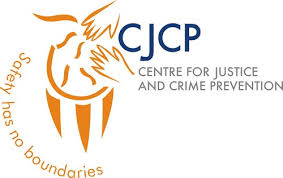
The Centre for Justice and Crime Prevention (CJCP) is a non-profit organization based in Newlands, Cape Town. It works to develop, inform and promote evidence-based crime prevention practice in South Africa and other developing countries. We have been actively involved in supporting the work of the CJCP since its establishment, working particularly closely on youth victimisation and youth at risk.
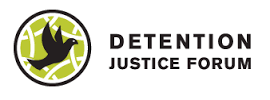
The Unit is a member of the Detention Justice Forum, a civil society coalition comprising of non-governmental organisations and individuals seeking to ensure that the rights and well-being of those who are detained are respected as enshrined under the South African Constitution, laws, and international human rights norms and standards.

Using a human rights framework, Gender DynamiX undertakes to advance, promote and defend the rights of trans and gender nonconforming persons in South Africa, Africa and globally.
Gender Project, Community Law Centre, University of Western Cape
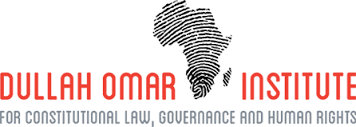
The members of the Unit have worked in partnership with CLC since 1997. This partnership involves a range of projects including empirical research and legislative reforms in the areas of rape, domestic violence, child justice and prisons. The Gender Project focuses on advancing the achievement of substantive gender equality and realisation of women's human rights in South Africa. Our research partnership with the Gender Project goes back a number of years to include the establishment of the Consortium on Violence Against Women, which produced outstanding collaborative research on the implementation of the Domestic Violence Act and Bail in Sexual Offences Cases. We have subsequently worked together on a large-scale domestic violence compliance review in the Eastern Cape and on state responses to the use of firearms in domestic violence cases.
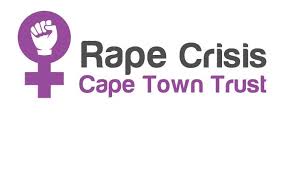
Rape Crisis Cape Town Trust is a non-profit organization that works directly with victims of sexual assault by providing counselling services and court support. Rape Crisis is also a leading advocacy organisation working in this area. We have worked closely with Rape Crisis over a number of years developing and advocating for substantive and procedural rape law reforms, as well as providing research support.

In 2004 the National Working Group on Sexual Offences (NWGSO) was formed to advocate around the proposed Sexual Offences Bill. After the Bill became law in late 2007, the NWGSO turned its attention to the implementation of the Act. This led to the creation of the Shukumisa Campaign in 2008. The Shukumisa Campaign aims to stir and shake up public and political will to develop and implement sexual offences policy, and to change social attitudes towards sexual violence. The Campaign also aims to ensure that more of us have a say in developing policies, laws and practices that affect our lives, as well as those of our families, friends and communities, and to improve the way rape survivors are treated by the criminal justice system.
The Unit is currently collaborating with the Shukumisa Campaign on a project monitoring the implementation of the 2007 Sexual Offences Act.

Triangle Project is a South African non-profit human rights organisation offering professional services to ensure the full realisation of constitutional and human rights for lesbian, gay, bisexual, transgender and intersex (LGBTI) persons, their partners and families.
Networking HIV, AIDS Community of South Africa (NACOSA)
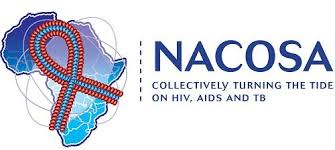
The Networking HIV, AIDS Community of South Africa (NACOSA) is a national civil society network of organisations working in the HIV, AIDS, TB and related social development fields.With more than 1,500 members - mainly community- based organisations but also non-profit organisations and individuals - NACOSA works to build healthy communities through capacity development, networking and promoting dialogue. We work with NACOSA to capacitate Sexual Offences Court and improve case outcomes for sexual violence and GBV cases.
Civil Society Prison Reform Initiative (CSPRI)
The CSPRI, established in 2003, is a research and advocacy project focusing on prisons and places of confinement in the African region, with the aim of furthering constitutional and human rights imperatives within these settings.
The CSPRI’s objectives include the promotion of good prison governance, the use of non-custodial sentencing options and improved reintegration services in order to reduce the recidivism rate. The CSPRI works to achieve these objectives through high quality research, lobbying and advocacy efforts and the development and strengthening of other civil society institutions and initiatives in order to promote effective awareness and oversight of prison-related issues. The range of issues examined in the field of prison reform by the CSPRI include: sentencing, parole, torture, pre-trial detention, conditions of detention and children in prison.
African Policing Civilian Oversight Forum (APCOF)
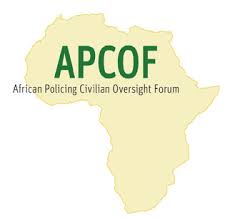
APCOF, created in 2004, is a network of African practitioners - drawn from state and non-state institutions - active in policing reform and civilian oversight over policing in Africa. APCOF believes that the broad values behind the establishment of civilian oversight are to assist in restoring public confidence, develop a culture of human rights, integrity and transparency within the police and promote a good working relationship between the police and the community. It achieves its goal through raising awareness, sharing information on police oversight and providing technical assistance to civil society, police and police oversight bodies in Africa. APCOF utilizes the expertise of its membership to promote learning and networking on the continent, and is actively engaged in country reform projects, regional dialogues, and is working at a continental level to prioritise police reform.
University of Bristol Human Rights Implementation Centre (HRIC)

The HRIC is based in the University of Bristol Law School in the UK. It was established in June 2009 in order to provide an international focus for developing expertise, advice and scholarship on the role of institutions in the implementation of human rights. Staff at the HRIC include leaders in the field of international human rights law and are recognised as being at the forefront of human rights research.
The objective of the HRIC is to work with a range of institutions and organisations at the international, regional and national levels to create a better understanding of how the implementation of human rights can be strengthened globally. The initial focus of the HRIC continued work undertaken in the context of a significant research project on the Optional Protocol to the UN Convention against Torture. As a result of this research the HRIC is recognised as one of the leading institutions for expertise on national mechanisms to prevent torture.
Since then the HRIC has expanded its work to include other areas of human rights and to work with a range of institutions more broadly on implementation issues. The current activities of the HRIC are based around four core interrelated themes namely: the Optional Protocol to the UN Convention against Torture; torture prevention; national human rights institutions; and strengthening implementation mechanisms and procedures.
Within the context of these four broad themes the HRIC conducts major pieces of research and provides advice to institutions and organisations at all levels aimed at strengthening efforts to improve implementation of human rights around the world.
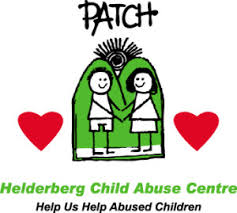
PATCH, the Helderberg Child Abuse Centre, aims to support all child victims of sexual abuse in the Helderberg and strives to prevent the incidence of this horrific crime committed against innocent children. PATCH believes that every child victim of sexual abuse is entitled to immediate crisis intervention, free professional therapy in his/her home language at a facility close to the child victim's home, and preparation for the court case.
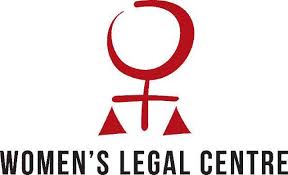
The Women's Legal Centre (WLC) is a non profit law centre that seeks to achieve equality for women, particularly black women. In order to fulfill its objectives, the WLC will, free of charge: Litigate cases which advance women's rights and are in the public interest, particularly constitutional cases; and produce briefs to assist courts in constitutional cases which concern women's rights and gender equality. In addition, where resources permit, the WLC aims to provide women's organisations with technical legal assistance in making submissions to parliament and other institutions.
